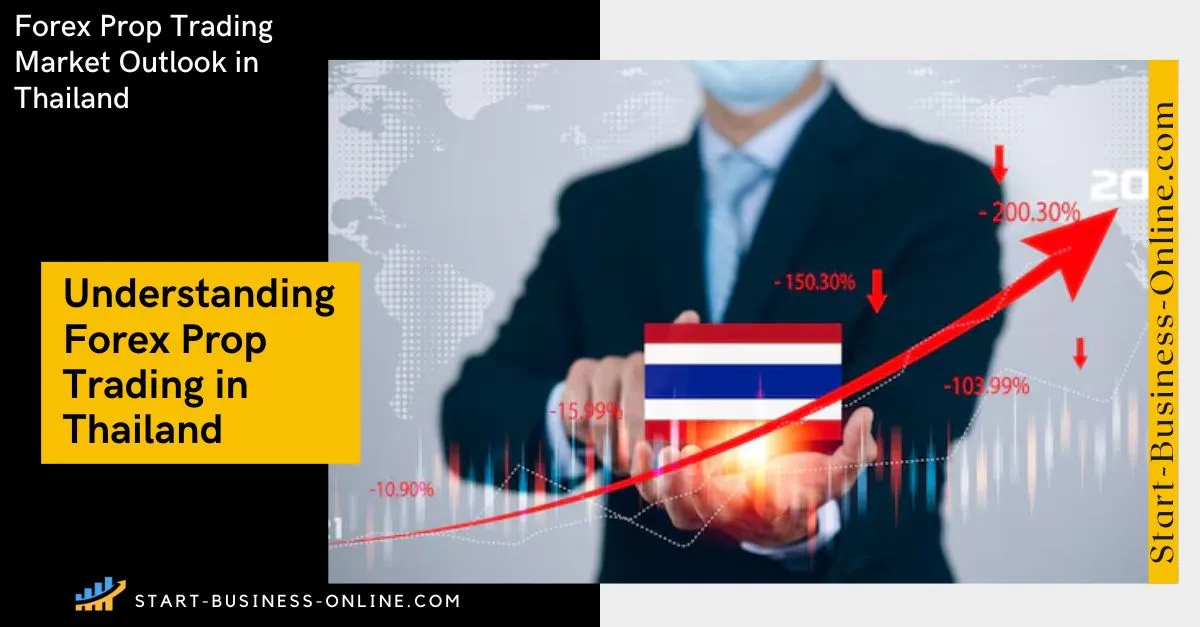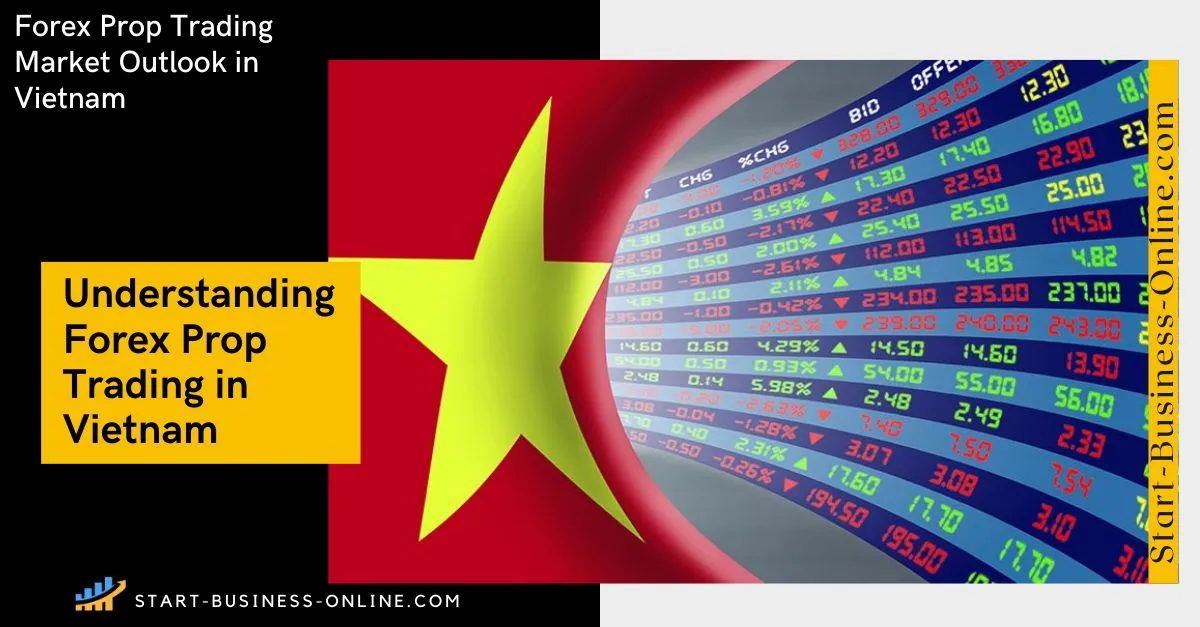To make it a funded swing trader you will need to find a prop firm that recognizes the unique needs of your trading style. This guide explains why prop trading may be inconvenient for swing traders, what qualifications a prop firm should have to be suitable and promising for swing trading, and provides a list of prop firms that swing traders may find suitable for their style of trading.
Prop Firm with Best Trading Conditions for Swing Traders
Page Contents
- 1. Prop Firm with Best Trading Conditions for Swing Traders
- 2. What is prop trading and what are prop firms?
- 3. Who are swing traders?
- 4. Pros & Cons of Swing Trading
- 5. Pros:
- 6. Cons:
- 7. The Benefits of Becoming a Funded Swing Trader
- 8. Success Stories of swing traders through history
- 9. Prop Firms for Swing Traders
- 10. Prop Firm Checklist for Swing Traders
- 11. Swing for these Prop Firms
- 12. Choosing Your Swing Trading Strategy
- 13. The Art of Correlated Pairs
- 14. Frequency of Trades
- 15. Amplify Your Trades
- 16. Scale New Heights
- 17. Wrap-Up Recap: Can Swing Trading get you a Funded Account?
- 18. FAQs on Unlimited Time Prop Trading Firms
View more
Swing hard, in case they throw the ball where you're swinging.
The legendary Duke Snider may have been talking about baseball, but swing traders are no strangers to this concept. You need to time your swing trades and you may well hit a profit home run. Your perfect pitch conditions will be determined by your choice of prop firms, which is why we have collated a list of the top options for swing trading.
As a rule of thumb, prop firms can be an excellent source of leverage for undercapitalized traders. A virtual “leg up” into magnified accounts and therefore maximized profits, prop firms offer up to millions of dollars in company capital in exchange for a minority cut of any earnings. In the same way that traders vary in style, risk appetite, and strategies employed, however, prop trading firms vary accordingly, and swing traders may find it difficult to have their needs met.
Prop trading is not simply a traders’ trust fund or capital cash cow. Interested traders need to demonstrate their ability to responsibly handle the entrusted capital alongside the potential to turn it into profit. In order to separate the cream from the crop, prop firms will assess the long-term viability and investment potential of traders through an internal test or series of evaluations.
During this monitoring, traders undergo a trading assessment whereby they need to hit certain profit targets without exceeding excessive drawdowns, often within a limited period. Depending on the prop firm in question, there may also be restrictions on trading style – bringing the constraints to swing traders in particular.
As a general practice, prop firms tend to favor short-term trading styles over longer approaches. Therefore, traders implementing scalping strategies may find it easier to hit their targets but long term, swing traders may struggle to pass prop firm challenges. Typical prop firm challenges can make success as a swing trader unviable if not even impossible.
But first, let us talk about definitions.
What is prop trading and what are prop firms?
Prop trading is an act of trading with the prop firm's capital, not the traders' own. Undercapitalized traders get to access otherwise impossible leverage, and in return, the prop firm lending the funds will keep a cut of any profits earned. The advantage is not only the vastly magnified accounts and therefore increased profits, but also the opportunity to trade with corporate capital instead of risking personal funds. The drawback is the restrictions on trading style and strategies that the prop firms attach as conditions to the use of their funding. How constrictive those rules are depends on the specific firm as each firm has its own set of rules.
Who are swing traders?
Make the most of every swing, for you never know which one will be the game-changer.
Traders making their first foray into the world of forex trading may be understandably overwhelmed by the sea of jargon. Before getting your trading teeth into the distinctions between major and exotic pairs, and the myriad factors impacting the price direction of global currencies – let’s unpack one fundamental: day traders versus swing traders.
Forex traders are often divided into two major categories: day traders and swing traders. Let’s whip the curtain of these popular trading styles and see what the differences are. Here is the definition of a day trader and a swing trader according to the popular fintech encyclopedia Investopedia.
Day Trader: A Day trader is a type of trader who executes a large volume of short and long trades to capitalize on intraday market price action. The goal is to profit from very short-term price movements. Day traders can also use leverage to amplify returns, which can also amplify losses.
Swing Trader: Swing trading has been described as a type of fundamental trading in which positions are held for longer than a single day. Traders attempt to capture short-term profits by using technical analysis to enter positions, hold for several days or weeks, and exit soon thereafter.
Let’s take sports as our metaphor. Day traders are essentially playing a game of tennis – lunging in the direction of a ball of profit which they hit over the net into their account. It is a fast-faced game where you might hit (or miss) the ball many times in a single session. Swing traders are the fishers of the forex community. They sit patiently waiting for that big catch. They might not get a bite for days – maybe weeks – but when they do, they could be reeling in a whopper, even the trophy of their account.
To recap, here are the bones of day trading:
- Day traders execute intraday strategies to profit from short-lived price changes for a specific asset.
- Day traders utilize a range of techniques to capitalize on market inefficiencies, often engaging in multiple trades per day and closing positions before the trading day concludes.
- Technical analysis is commonly employed in day trading, emphasizing the need for self-discipline and objectivity.
- While day trading can be profitable, it entails significant risk and uncertainty.
Moving onto the skeleton of swing trading (we’ll be adding the meat to the bones further into this article!):
- Swing trading occupies a position between day trading and trend trading on the trading continuum.
- Swing traders typically enter a position, hold it for several days to weeks, and then aim to exit the position with a profit.
- The initial crucial aspect of successful swing trading involves selecting the appropriate stocks, which are frequently characterized by volatility and liquidity.
- Successful swing trading is dependent on market conditions, and different trading strategies may be employed based on the prevailing market type.
- Technical analysis plays a significant role in swing trading, requiring an understanding of price channels and the utilization of simple moving averages.
Pros & Cons of Swing Trading
In trading, as in life, there is no “one size fits all.” If a single strategy were the guaranteed winner every time – then there would be no others to choose from. The truth is that each trading style and approach will complement or be ill-suited to a particular asset or financial market. To complicate things further, individual traders may influence their success through factors as intangible as mental strength, stamina, trading personality, and appetite for risk. Swing trading may not be for every opportunity or trader – but it has been a tried and tested strategy with extraordinarily successful outcomes, and it may be the one for you. After all, there is a good reason why forex is dominated by swing traders.
Here are the main pros and cons of swing trading
Pros:
- Larger profit potential due to long-term holdings.
- Less stressful than other forms of trading.
- Flexibility in terms of time commitment.
Cons:
- Longer patience is required. Potential for missed opportunities.
- The potential impact of swap fees on trading profitability.
- Increased risk exposure due to potential market gaps or unexpected news events.
The Benefits of Becoming a Funded Swing Trader
Now I'm the king of the swingers, oh, the jungle VIP I've reached the top and had to stop and that's what botherin' me
Now, King Louis may have been referring here to swinging from branch to branch – not forex trade to trade – but he sure swung his way to the top. Many a forex trader may relate to this catchy tune from The Jungle Book: swing trading is an excellent and highly profitable strategy choice for many traders. Millions can bear testament to growing their accounts through the “HODL” approach deployed by swing traders, in other words, hold on and wait for that whopper.
Success Stories of swing traders through history
- Jesse Livermore: Livermore is one of the legends of swing trading. He famously shorted the stock market before the 1929 crash, making millions of dollars in profits. The combination of his accurate timing of market swings together with a disciplined approach to risk management put his name down in trading history.
- Paul Tudor Jones: Jones is a phenomenally successful hedge fund manager and swing trader. He saw the 1987 stock market crash coming – and made massive profits by timing his swing. Jones continues to be a name to watch out for in fintech news.
- Linda Raschke: Raschke is a well-known swing trader and author who has made a name for herself through her expertise in short-term trading strategies and her ability to capture price swings in various markets. Raschke has shared her insights and strategies through her books and trading seminars.
- Dan Zanger: Zanger is an example of how swing trading can turn a modest investment of a few thousand dollars into millions in just a few years. In Zanger’s case, it was through recognizing stocks with strong momentum and riding those upward swings!
- Mark Minervini: Minervini is a swing trader who won the U.S. Investing Championship in 1997 nailing a whopping 155% return. His piece-de-theatre is a meticulous stock selection from which to capitalize on short-term price movements. Minervini is now somewhat of a trading influencer, sharing his strategies and insights through his books and training programs.
Simply put, swing trading can be a powerful and highly profitable trading style when used correctly – and funded challenges are no exception.
There is an angle that the leverage available through prop firm challenges could generate far greater returns through swing trading than some other approaches. Swing trades timed right by funded traders could vastly magnify starting account sizes – with the added benefit of the use of company capital instead of personal funds. As we will shortly discover, however, not all prop trading firms are suitable for swing trading. If you are a swing trader considering a funded challenge, then it is important to do due diligence and find the prop firm that will bring out the best in your trading style.
Prop Firms for Swing Traders

Now, onto the question du jour – what type of prop firms should swing traders look out for? There are certain platform qualities or challenge criteria that will benefit (or hinder) swing trading strategies and we have done the research, so you do not have to! Swing traders looking for prop firm funding will face one main hurdle: time. The value of time goes back as well as the beginning of time itself! To quote the Greek philosopher Theophrastus:
Time is the most valuable thing a man can spend.
For swing traders – there may simply not be enough of it to create the value or profit to spend over the duration of a funded challenge. Many prop firms impose strict trading criteria to assess the viability of potential traders, and one of these is a time limit. Certain prop firms demand that positions are closed by the weekend while requiring a close by the end of each trading session. Traders may often face an additional rule of closing positions ahead of major events, such as a central bank's monetary policy announcement or a release of an important macroeconomic report. The long and short of it is that you cannot wait long to go short. These types of prop firms are clearly unsuitable for swing traders, whose approach will be ill-suited for the challenge and result in poor chances of successful funding.
This brings us to the logical conclusion that swing traders need prop firms without these limitations. Prop firms which permit overnight and weekend positions, alongside news trading, are ideal for swing traders. An added boon would be firms that neither limit the length of a position that can be held nor the number of minimum trades.
Prop Firm Checklist for Swing Traders
Many prop firms have a reputation for stringent trading conditions – including the time limit so dreaded by swing traders. Fortunately, however, there are plenty of proprietary trading firms whose challenges have flexible rules or can be completed with an unlimited time that is perfectly suited for swing trading strategies. Here is a handy checklist of what to look out for in a prop firm if you are considering using swing trading:
- Overnight Holding: Overnight holding is obviously a must-have for swing traders. A lot of bigger prop firms need you to be flat on positions by London Market Close at 10 pm. Swing traders will be significantly held back by any ban on overnight holding but fortunately, an increasing number of prop firms have removed this limitation.
- Weekend Holding: There is no getting around the fact – weekend holding is critical for swing traders. In the list of appropriate prop firms, you will find plenty of proprietary trading sites whose challenges not only allow but also encourage this practice. Swing traders should think hard before choosing a prop firm that requires them to close their positions before the market session ends on Fridays.
- Hedging Swing: traders are particularly adept at harnessing the power of hedging. While advanced, hedging can be incredibly valuable for traders aiming to capitalize on significant market swings, so do look for prop firms that support this strategy.
- Holding Through High-Impact News Events: Swing traders often hold trades for months at a time. Therefore, it is only impractical but potentially damaging to exit during high-impact news events such as NFP or bank rates. Check that your prop firm does not limit news trading to protect your position during high-risk events. Some prop firms even have risk desks or appointed managers to assist funded traders through potentially impactful events.
- No Time Duration: The duration of a swing trade is unpredictable; sometimes you may be sitting on a position for several months. For this reason, a prop firm that offers traders unlimited time or is highly flexible with limits is all-important for swing traders. Thankfully, a growing number of proprietary trading sites are recognizing the increased risk assumed by swing traders who are obliged to meet arbitrary deadlines. Focus on funding challenges that encourage quality over speed.
- No Aggressive Profit Targets: In trading, as in life, there are those who thrive under pressure. Swing traders, however, will naturally find fixed profit targets counterproductive to their particular style. A fixed amount such as “10% profit in 20 days” will simply be unrealistic if not impossible to many swing trading strategies. Ideally, choose a firm that emphasizes the profit target itself – not the time in which it takes to reach it.
Swing for these Prop Firms
Now it is time for the ultimate list of swing trading-friendly prop firms! [Drumroll] Get ready to swing your way to success with these top-notch firms with tailor-made rules for swing traders. We have compiled all the important details, including fees, requirements, conditions, and more, so you can make an informed decision. Swing for one of these prop firms and do not be held back by your choice of trading style.
| Prop Firm | Swing Trading Friendly |
|---|---|
| FunderPro | (Hold positions over the weekend and during news events. No Consistency Rule in Phase 2.) |
| FTMO | (FTMO is a well-known and respected prop firm, particularly favored by new traders. While swing traders may find some restrictions, they can choose the Swing account type to avoid them. Swing accounts allow overnight positions, weekend trading, and news trading without limitations. The only drawback is lower leverage (1:30), still decent. The evaluation process is relatively short, which may be a downside for swing traders with longer-term strategies. However, once evaluated, working with FTMO poses no problems.) |
| the5ers | (The 5%ers is a respected prop firm ideal for swing traders. It offers unrestricted overnight, weekend, and news trading. Their evaluation plan allows up to 12 months to complete and provides instant funding options. Time limits exist for reaching profit objectives in the initial program level (60 days for Aggressive, 180 days for low-risk traders), but subsequent levels have no time constraints in their instant funding program.) |
| Hola Prime | |
| NeomAAA Funds | |
| ThinkCapital | |
| UltraCap Trading | (With a Swing Account, the leverage is 1:60, and traders can hold trades over the weekend.) |
| Elites Funding | |
| EverBlue Trader | |
| PIP Traders Funding | |
| Bold Fund | |
| TradingFunds | |
| 1of1 Funding | |
| Alpha Trader | |
| DNA Funded | |
| PROP365 | |
| Funded Squad | |
| Propel Capital | |
| Plutus Trade Base | |
| Tycoon Funded | |
| Clarity Traders | |
| Upcomers | |
| Funded Prime | |
| SuperFunded | |
| TakeCap | |
| City Traders Imperium | (City Traders Imperium is a promising prop firm for swing traders. It offers minimal limitations on trading and provides a generous time limit to reach profit targets during the evaluation period for the Standard and Classic programs. However, a significant drawback is the requirement to close positions before high-impact news, which restricts the duration of swing trades. The Daily Trading program lacks this limitation but is more suited for daily traders. Nevertheless, if a swing trader successfully passes the rigorous evaluation process, they will enjoy greater trading freedom with fewer limitations.) |
| Lux Trading Firm | (Lux Trading Firm provides very appealing benefits for swing traders with features like the lack of limitations on overnight, weekend, and news trading, it offers no time limit for the evaluation stage. However, there are a few drawbacks to consider like the payout ratio (comparing with the scaling plans of other prop firms) and the requirement to use a similar lot size and risk percent per trade during the evaluation stages. ) |
| Tradexprop | (Overnight & weekend OK) |
Choosing Your Swing Trading Strategy

Tiger Woods may swing his golf club in a different way from Jon Rahm, but both men can get a hole-in-one. In trading as in golf, there is more than one style of swing and the strategy you choose will depend on a myriad of factors. It is important to adjust your approach with research and forethought to minimize risk and maximize your potential profits. Here are a few tips to consider:
The Art of Correlated Pairs
Swing trading is all about navigating multiple positions simultaneously. You may find yourself selling currency pairs concurrently – EUR/USD, GBP/USD, and NZD/USD on the delicate market swings. Take care to leave emotions out of your market decisions, and do nonetheless protect your assets against a market situation in which your correlated trades go south. Bear in mind that many prop firms will have maximum loss limits and daily drawdowns and manage your trades to ensure you do not exceed these amounts. Overall, funded trading and the challenges associated with prop firms are an excellent way to work on your risk management strategies for your future professional development.
Frequency of Trades
Just because swing traders often hold a trade for longer, does not mean they are sitting idly waiting for a seed to magically bloom into profit. Swing trading – just like any other approach – requires a disciplined combination of action, volume, and well-timed trades. Backtesting is a highly recommended technique to both pilot a new strategy and familiarize yourself with monthly and yearly trade frequency. Play around with the tempo of your trades to settle on a swing trading style that brings out the best in you.
Amplify Your Trades
Even the more time-intensive swing trading approach needs to “pump up the volume” in certain market dynamics. Success as a swing trader lies in learning how to add positions at the perfect moment and monitoring your stop losses accordingly. Ride the waves of profits but remember your life jacket of risk management!
Scale New Heights
Swing traders are not associated with the high-volume, fast-paced environment of scalping and short-term approaches. Nonetheless, to make it a funded trader with a swing trading approach you will need to combine forces with a prop firm that recognizes the unique needs of your trading style. Many prop firms have scaling plans that will build up traders with the potential to ever larger account sizes with profit shares that increase accordingly. With the right choice of platform, you can be one of those traders.
Wrap-Up Recap: Can Swing Trading get you a Funded Account?
Prop trading firms can be the opportunity of a lifetime for many individuals – swing traders included. If anything, the larger position sizes and resultant wins in swing trading can make the leverage offered through funded trading even more alluring. Do be cautious of the stringent conditions imposed by some prop firms. Before making any investment, unleash your inner Sherlock Holmes and make sure you understand the terms and conditions of the platform in question.
Swing traders win not by time but by size. If you are a swing trader, remember to trade slowly but safely, and entrust your potential as a trader with a prop firm that understands the swing trading mindset and champions your success. The prop firm landscape is changing and swing traders should watch this space.
Traditional prop firms are shedding outdated restrictions, such as the unpopular 'no weekend holding' rule. Stay ahead of the curve by keeping an eye on our Top Prop Firms List to keep your finger on the pulse!
FAQs on Unlimited Time Prop Trading Firms
Yes, the number of prop firms that allow swing trading is growing. An increasing number of funded trading platforms now have options with no limits on overnight, weekend, and news trading.
Swing traders hold trades for a few days to several months, capitalizing on projected price movements. Swing trading accounts are therefore designed to hold trades for short to long term. Keep in mind, though, that swing trading has associated overnight and weekend risks, as prices can experience significant gaps when the market opens.
If you are new to the trading world, swing trading can be an excellent starting point. Compared to scalp trading or day trading, swing trading can be a sensible first choice. Swing trading is less time-intensive, allowing you to be less actively involved in continuously monitoring positions. The pressure and mental load that can come with more high-frequency strategies can be a big leap for a first-trading strategy, and swing trading could be more beginner-friendly for this reason.






